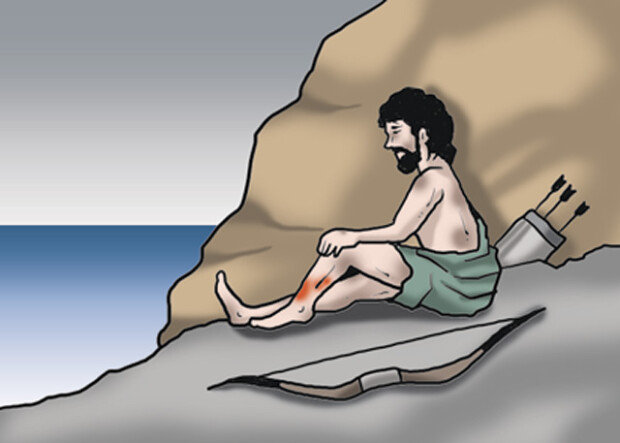If a country had a heart
If a country had a heart
Posted September. 23, 2020 07:59,
Updated September. 23, 2020 07:59

“Philoctetes” by Sophocles is not as well-known as his other plays, such as “Oedipus Rex” or “Antigone,” but still shows deep insight into a wounded heart.
Philoctetes was a Greek general who participated in the Trojan War. He had a bow that 100 percent hits the target. One day, he was bitten by a venomous snake on his way to Troy. His screaming in pain and a terrible smell from his wound terrified those around him. As he became a burden to their journey, they abandoned him on a deserted island.
He lived in a cave for 10 years, collecting rainwater for drinking and catching birds and wild animals with his bow. His wound did not heal, however, brining severe pain regularly to the point that he wanted to cut his own foot. What was weighing on his heart even more was his wounded heart from the betrayal. He persisted in hatred.
Meanwhile, the Greek army hadn’t been able to win the war. According to a prophecy, the war could not be won without Philoctetes’s bow. The army had to bring him back from the deserted island. Odysseus was in charge of the mission. He was a figure willing to do anything for his country. He was accompanied by the late Achilles’ young son, Neoptolemus, and ordered others to bring Philoctetes back by any means. Odysseus was determined to return with the bow, even if he had to kill Philoctetes.
Neoptolemus followed Odysseus’ order at first but had a change of heart after looking at the tearful years endured by Philoctetes and the extreme level of pain driving him to insanity. He could not betray the person who was once betrayed already. In the end, Neoptolemus turned his back to his country by returning the bow he seized to Philoctetes. However, what was ironic was that it was indeed such a humane gesture that saved the country. Philoctetes was brought back to Troy and treated before leading the Greek army to victory. The play “Philoctetes” written by Sophocles at the age of 83 highlights that not only individuals but also a country needs to have a kind heart taking care of people’s wounds.



![납중독 사망 50대, 원인은 ‘낡은 보온병에 담은 커피’[알쓸톡]](https://dimg.donga.com/c/138/175/90/1/wps/NEWS/IMAGE/2026/01/19/133182417.3.jpg)



